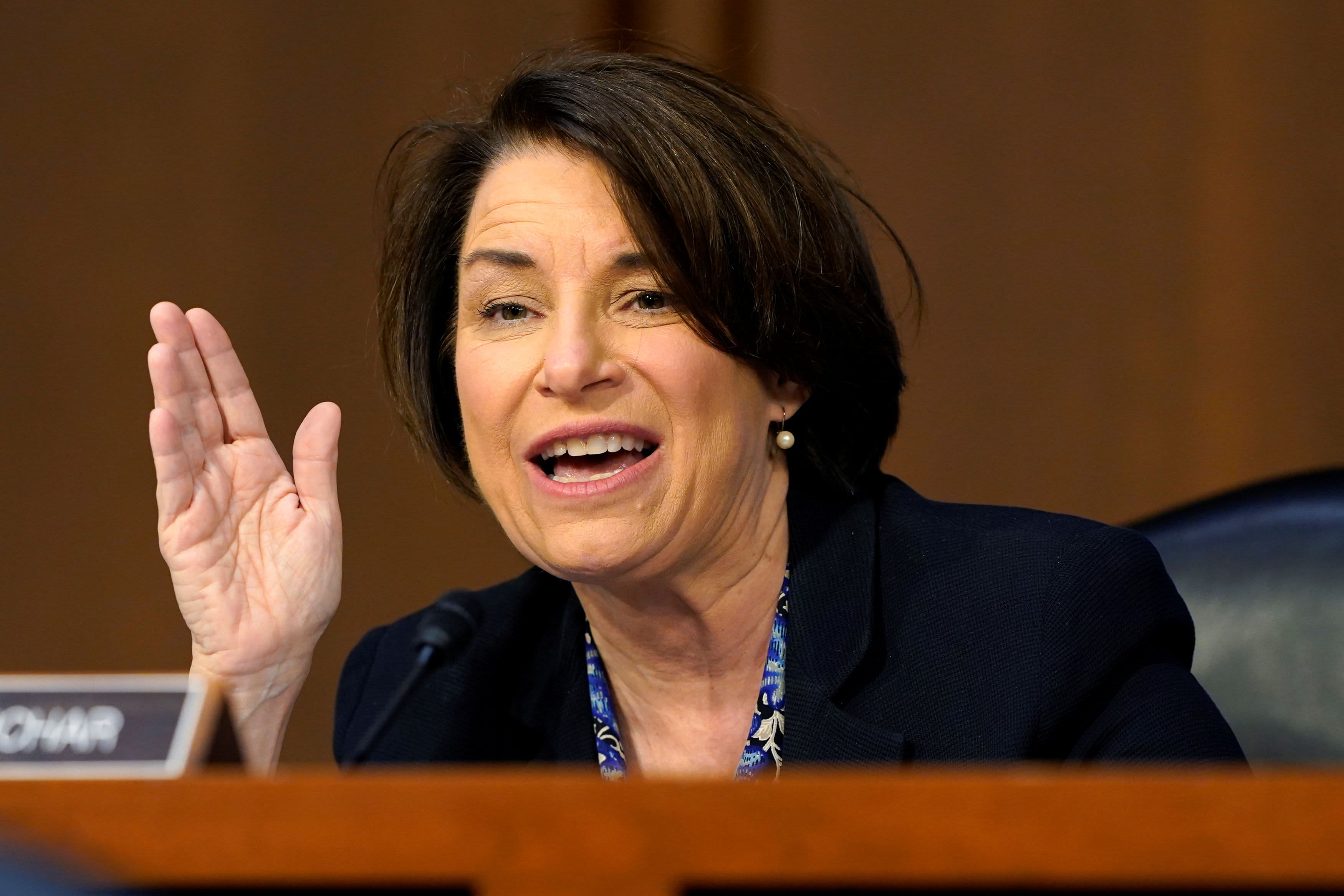
Sen. Amy Klobuchar, (D-MN) speaks during the fourth day of the confirmation hearing for Supreme Court nominee Judge Amy Coney Barrett before the Senate Judiciary Committee on Capitol Hill in Washington, DC, October 15, 2020.
Susan Walsh | Pool | Reuters
The Senate Judiciary Committee voted 16-6 Thursday to advance a major tech competition bill, which some experts consider lawmakers’ best shot at making substantial reform into law.
The American Innovation and Choice Online Act passed in a bipartisan manner, setting it on a path to potentially be adopted by the full Senate.
The committee’s House counterpart already advanced a similar bill and its movement in the Senate could bring momentum to that bill as well. While the White House has not yet weighed in on whether it will support this particular legislation, it has generally supported efforts to increase competition and President Joe Biden has installed progressive leaders at the antitrust agencies.
The bill has significant implications for Amazon, Apple and Google in particular, though as it’s currently written it would also apply to other large platforms like Facebook-owner Meta and TikTok. The bill prohibits dominant platforms, defined by criteria including their userbase and market cap, from discriminating against other businesses that rely on its services, in what’s sometimes referred to as self-preferencing.
That means, for example, Amazon could not simply decide to list its own private label products higher in its search ranking than third-party rivals’ listings. And Apple and Google could not unfairly rank their own apps higher than rivals’ in their own mobile app stores. The same principle would apply to Google’s general search engine as well.
Senators offered over 100 amendments to the bill by the start of Thursday’s markup, but only a handful were debated, as Sen. Amy Klobuchar, D-Minn., who chairs the antitrust subcommittee and led the bill with full committee ranking member Chuck Grassley, R-Iowa, urged efficiency and promised to continue workin on lingering concerns.
Only one of the amendments debated Thursday was adopted, a second-degree amendment by Klobuchar and Grassley to one introduced by Sen. John Cornyn, R-Texas. Cornyn said his aim with the amendment was to make it more difficult for foreign adversaries like China to access American user data based on the bill’s requirement for dominant platforms to allow other services to interoperate with them.
Klobuchar expressed concerns that the initial language in the amendment would give tech platforms more room to get out of liability under the statute. Her second-degree amendment narrowed Cornyn’s language to expressly cover data transfers to the People’s Republic of China or governments of other adversaries and companies controlled by them.
This story is developing. Check back for updates.




